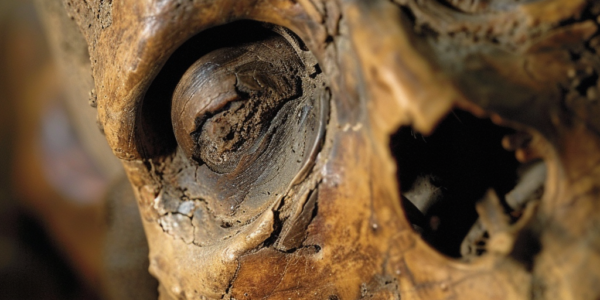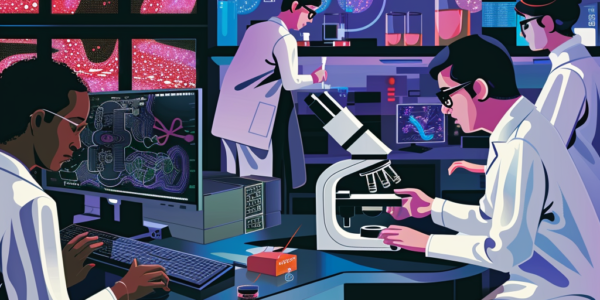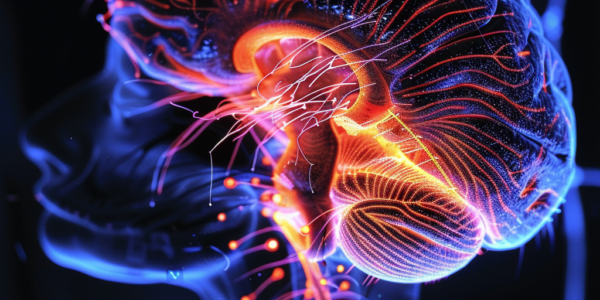Massive Ancient Tsunami Uncovered in Western Canada
University of Saskatchewan researchers make groundbreaking discovery of evidence of a massive tsunami that swept across ancient sea covering Western Canada and northern United States 445 million years ago. Dr. Brian Pratt and Dr. Colin Sproat shed light on this ancient natural disaster, providing valuable insights into the geological history of the region.
Study Links Marijuana Use to Increased Risk of Heart Attack and Stroke
A recent study has found a significant link between marijuana use and an increased risk of heart attack and stroke, even in individuals with no existing heart conditions or who do not use tobacco products. Daily and non-daily marijuana users face elevated risks, with the risk of stroke rising by 42% and the risk of heart attack rising by 25% in daily users. The study emphasizes the need for healthcare practitioners to recognize the potential dangers of cannabis use in relation to cardiovascular health, as cannabis consumption continues to rise.
Physicists Make Groundbreaking Discovery in Study of H2+ Molecule
Physicists from Heinrich Heine University Düsseldorf (HHU) have made a groundbreaking discovery in the study of the simplest molecule, H2+. The molecule, which is composed of two hydrogen nuclei and one electron, has long been a subject of interest for astrophysics and fundamental physics due to its significance in the early formation of the universe. Published in Nature Physics, the study details the team’s successful measurement of the molecule’s vibrations using a laser, marking the first direct observation of such behavior. The findings closely align with theoretical predictions, shedding light on the elusive nature of H2+.
Ancient DNA Study Reveals Down Syndrome and Edwards Syndrome in Infants
Groundbreaking study reveals the presence of Down syndrome and Edwards syndrome in ancient DNA, shedding light on the treatment of individuals with genetic conditions in premodern societies. Lead author emphasizes the level of acknowledgment and inclusion within their communities. Diagnosing Down syndrome in ancient remains poses challenges due to the variability of the condition. These findings offer valuable insights into the historical care and treatment of individuals with genetic conditions.
Revolutionary ‘Artificial Leaf’ Technology Converts Solar Energy into Hydrogen Fuel
Scientists have unveiled a revolutionary ‘artificial leaf’ technology that converts solar energy into hydrogen fuel through direct water splitting. This innovative approach offers enhanced efficiency, cost-effective production, and global implications for sustainable energy solutions. The use of recyclable materials and low-melting-point metals points to a cost-effective and scalable approach for manufacturing solar energy conversion devices, potentially revolutionizing energy systems worldwide.
Tesco and British Heart Foundation Partner to Promote Heart Health
Learn how Tesco, in partnership with the British Heart Foundation, is raising awareness of heart health by offering nutritious and delicious meals approved by nutritionists. With as many as 5 million Brits having undiagnosed high blood pressure, Tesco is making it easier for individuals to plan and prepare heart-healthy dishes using affordable ingredients. Find out more about the mouthwatering meal options and the importance of adopting a balanced and nutritious diet to support heart health.
LIFE Space Mission Study Shows Potential to Detect Traces of Life on Exoplanets
Physicists at ETH Zurich and the University of Zurich have conducted a study to determine whether the planned LIFE space mission could detect traces of life on other planets. The study, published in The Astrophysical Journal, utilized our own planet as a test object to demonstrate the mission’s potential success. The LIFE (Large Interferometer for Exoplanets) initiative, led by ETH Zurich, aims to use a network of five satellites to detect traces of life on exoplanets. These satellites will form a large telescope close to the James Webb Space Telescope, allowing for the observation of Earth-like exoplanets and the deduction of their composition and atmospheres based on infrared thermal radiation.
Enzyme Checkpoint Identified in Tumor-Associated Macrophages
A recent study has identified an enzyme, phosphoglycerate dehydrogenase (PHGDH), as a metabolic checkpoint in the function of tumor-associated macrophages (TAMs), affecting tumor growth. Targeting PHGDH could be a new approach in cancer treatment, potentially improving the effectiveness of clinical immunotherapies. The study utilized innovative methods, including AI and machine learning, to diagnose metabolic markers and identify checkpoints, leading to the discovery of the metabolic checkpoint in macrophage polarization.
Study Reveals Glitter’s Impact on Aquatic Plant Growth
Recent study reveals the concerning impact of glitter on aquatic plant growth, as the metal coating on glitter reduces the amount of light penetrating water bodies, impairing photosynthesis in the Large-flowered waterweed Egeria densa. Glitter, often made of microplastics and metals, is a common pollutant in rivers and seas, accumulating in aquatic environments. The research focused on the effects of glitter on E. densa, an important macrophyte native to South America, highlighting the potential harm that glitter can cause to aquatic plant life.
New Study Reveals Link Between Sense of Touch and Perception of Time
A recent study published in Nature Communications has revealed a fascinating link between the somatosensory cortex, responsible for processing sensory information from the skin, and our perception of the duration of tactile experiences. Led by Professor Mathew Diamond of the International School for Advanced Studies (SISSA) in Italy, the research sheds new light on the relationship between the sense of touch and our perception of time, providing new insights into the complex relationship between touch and temporal experiences.










